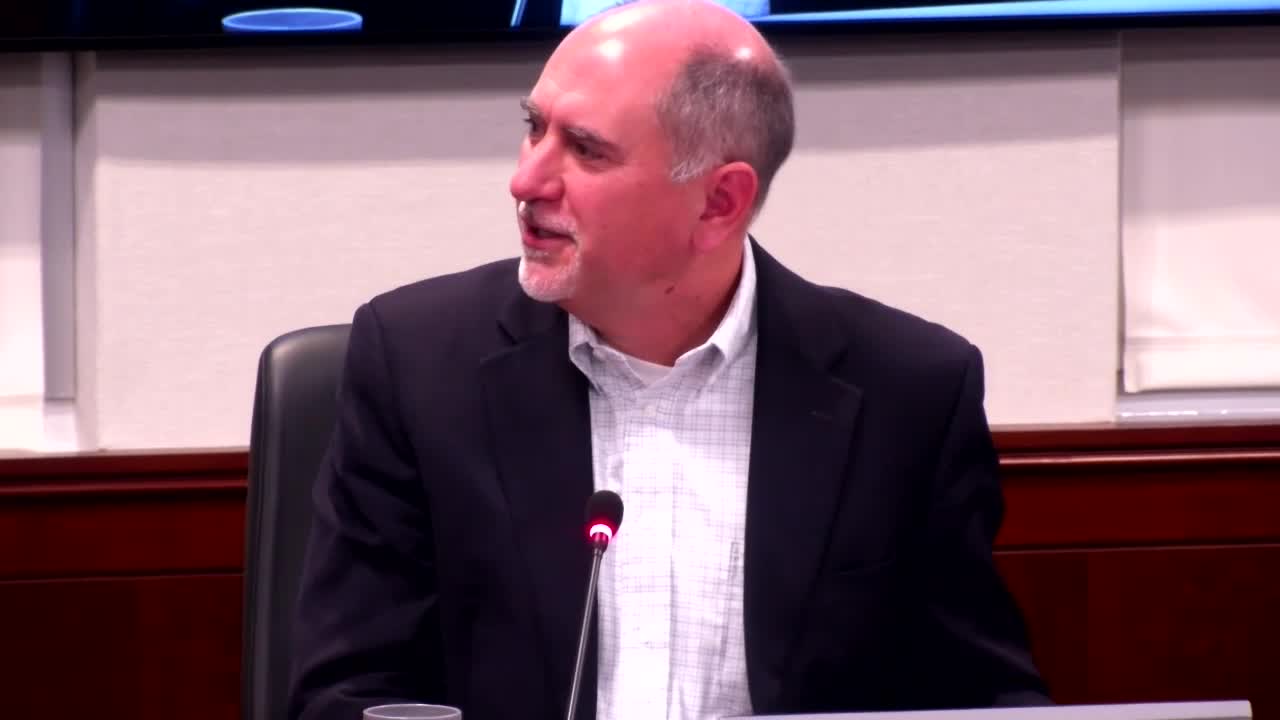Council committee advances tougher nuisance fines and gives council petition power after party and illegal‑business complaints
Get AI-powered insights, summaries, and transcripts
Subscribe
Summary
The committee advanced revised nuisance‑abatement legislation combining CB79 and CB80 that raises fines, creates stronger enforcement options for repeated violations and allows council member petitions to the Nuisance Abatement Board; the bills were combined and forwarded to the full council with instructions to refine petition mechanics.
The Transportation, Infrastructure, Energy and Environment Committee voted Thursday to advance combined legislation (CB79/CB80) that increases civil and criminal fines for repeat nuisance violations, clarifies enforcement mechanisms and adds a path for council member petitions to the Nuisance Abatement Board.
Sponsors said the revisions respond to repeated complaints from neighborhoods about large house parties, illegal home‑business operations and other recurring nuisances that are difficult to resolve through existing citation and inspection steps.
Key elements advanced by the committee: - The bills add a definition of “promoter” to capture individuals or entities that organize, publicize or facilitate recurring events at a premises even if they do not own the property. - Civil fines were raised (first violation and subsequent escalations) and criminal fines were increased as part of a deterrence strategy; the committee provided a vehicle bill (CB80) and instructions to harmonize language. - Sponsors sought a procedural route for a council member to submit a petition to the Nuisance Abatement Board so that elected representatives can ask the board to review locations with repeat incidents, provided the petition is backed by evidence from cited agencies or resident documentation.
Shirley Latham, chair of the Nuisance Abatement Board, told the committee that proving a chronic nuisance requires an investigative record: citations, photos, police call logs and affidavits from inspectors or residents. Latham said enforcement is time consuming and that higher fines and the ability to attach outstanding fines to property tax bills are intended to strengthen enforcement for repeat offenders.
Sponsors and staff asked the Nuisance Abatement Board and relevant agencies to work with council offices on a practical petition format and to clarify timelines for investigation and hearings. Committee sponsors asked staff and the board to refine the bill language and procedural mechanics before introduction so council offices can submit petitions without creating an administratively unworkable caseload.
The committee moved the combined bill forward with instructions for technical clean‑up and coordination with the Nuisance Abatement Board and Doherty / Office of Law; vote was 5–0 to forward the combined measure.
